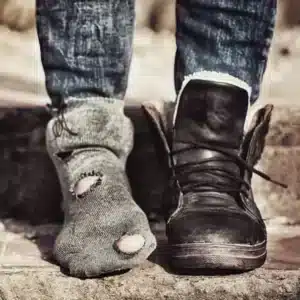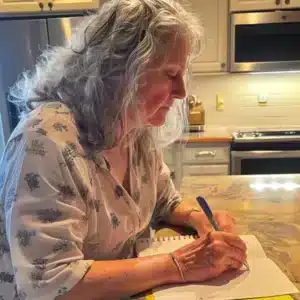My sister used to lean on me for everything—pickups, dinners, last-minute sleepovers with her three kids. After almost a decade of negative tests and a bankruptcy-inducing IVF attempt, I adopted a baby girl. That’s when my sister looked me in the eye and said, “My kids are your flesh and blood. Not that child.”
At my dad’s birthday cookout, I laid four-month-old Mira down in the guest room, the monitor app open on my phone, lullabies whispering through the speaker. I stepped outside for five minutes to breathe. When I came back, the feed had frozen, the bassinet was empty, and my heart went off a cliff.
I ran through the house, calling her name like she could answer. Everyone was still at the table—everyone except Roya. Our cousin Saleh glanced up. “She went to the car,” he said. “Looked like she had a blanket.”
I hit the front steps barefoot. Roya’s minivan idled across the street. I yanked open the door and there she was, buckling Mira’s car seat like she had a right.
“What are you doing?”
“You weren’t watching her,” she said, unbothered. “I thought I’d take her for the night. Let you rest.”
I lifted my daughter out before the latch clicked. My hands shook so hard I could feel it in my teeth. “She’s not a casserole, Roya. You don’t get to take her.”
Roya dusted invisible lint from her sleeve. “Fine. But don’t cry to me when it gets too hard.”
I didn’t cry then. Something just…locked into place. This wasn’t about help. It was about control, and the little cut she couldn’t resist making when the word “adopted” entered the room. Mira was mine. Full stop.
I’m Naima, 38. For years, Roya told me to relax, that it would “happen.” It didn’t. What did happen was a hard, honest adoption process, a failed match, and then a call from Georgia. A young mother wanted a closed adoption. Two days after Mira was born, I brought home seven pounds of quiet miracle.
My parents cried when they met her. My uncle slid a tiny gold bracelet onto her wrist. Roya said, “Well. That’s fast,” and didn’t stop by until I brought Mira to her daughter’s party two months later. She called my child “the baby,” never her name. She still treated me like the family babysitter, dropping her kids without warning, and when I finally said no because Mira had a fever, she texted: “Must be nice to have only one to worry about.”
I let too much slide for peace. Then came the dinner. The minivan. The taking. The week after, I wrote to the family group chat without naming names. I said I wouldn’t attend gatherings where my daughter wasn’t recognized as my daughter. I said I didn’t need “help” from people who didn’t see her as family.
I braced for a storm. What I got was a sift.
My cousin Mehdi DM’d: “You’re right. She’s been out of line.” Aunt Samira called and told me she was proud of me; two days later, a quilt arrived with “Mira” stitched across it in pink. The circle around me shrank and got stronger.
Roya stayed silent for two months. Then she appeared on my porch with a latte and a tight smile. She didn’t lead with an apology. She led with the thing under the thing.
“I didn’t think it would hit me like this,” she said. “Seeing you with her. I felt…left behind. Left out.”
“So you tried to take her?” I asked.
“I wasn’t thinking. I was angry. And jealous. I didn’t handle it right.”
It wasn’t everything I needed to hear, but it was honest enough to open the door. Mira sat in her bouncer, gnawing on a rubber giraffe. Roya crouched and whispered, “Hi. I’m your aunt. I’m sorry I was weird before.”
That’s where it turned.
We started small: a park date, a quiet lunch. Roya texted before dropping the kids. She used Mira’s name. She brought over hand-me-downs and didn’t make a show of it. One afternoon, she said, “If you really need a break, I can come by. Hold her. Fold laundry. Whatever.”
I stared. “Seriously?”
“You’re a good mom, Naima,” she said. “I see that now.”
It wasn’t instant forgiveness. It was a choice to try again with clear lines. At Mira’s first birthday, Roya showed up with streamers and a strawberry cake crowned with cream cheese frosting. I caught her in the kitchen swaying with Mira on her hip, both of them laughing like they’d always known how.
Something unclenched in me.
When the guests left and the balloons sagged to shoulder height, Roya handed me an envelope. Inside was a photo from that first chaotic dinner—the night of the minivan. In it, Mira slept in my arms. In the background, Roya looked at us with a face I couldn’t read then: not anger, but confusion and ache.
“I found it on my phone,” she said. “Didn’t remember taking it.”
“Thanks,” I said.
She met my eyes. “I really didn’t get it before. That she’s yours. That it isn’t blood that makes a family.”
“No,” I said. “It isn’t.”
We stood there a long beat, two sisters trying to do better with what we know now. Roya still has her moments; so do I. But she shows up. She asks. She corrects people when they call Mira “adopted” like it’s a permanent prefix. Her kids call Mira their cousin like it’s the most obvious truth on earth. Mira toddles after them as if they hung the moon.
I used to worry adoption would feel like a consolation prize. It doesn’t. It feels like the exact road that led me to my daughter. The baby I didn’t carry has carried me through rooms I didn’t think I could walk into. Through loss. Through hard boundaries. Through the quiet work of building a family on purpose.
If you need the reminder, here it is: you don’t have to share blood to share a life. Love is measured in showing up, in learning, in doing better the second time. And when someone tries to reduce your child to paperwork or provenance, you’re allowed to draw a line. Then fill the space inside it with all the ordinary, holy things that make a home.





